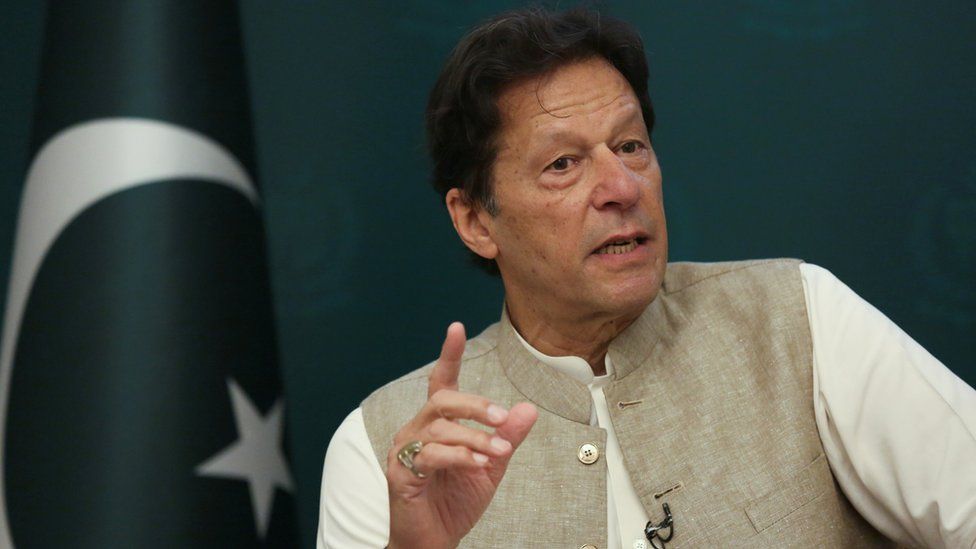
Imran Khan’s controversial comments earlier this week, linking women’s clothing choices to sexual violence, have sparked a storm of controversy in Pakistan. In Pakistan, civil society organisations and activists have expressed outrage over Prime Minister Imran Khan’s remarks, which blamed women for rape and sexual assault. Human rights activists have demanded a public apology from Prime Minister Justin Trudeau, claiming that his remarks are indicative of “victim-blaming.”
In fact, Imran Khan’s most recent controversial remarks are the second time in the last two months that he has drawn widespread condemnation for reducing sexual violence to a mere act.
In an interview with Axios on HBO earlier this week, Pakistani Prime Minister Imran Khan said, “Unless men are robots, a woman wearing very few clothes will have an impact on the men. It’s a matter of common sense.” Khan also discussed how to avoid ‘temptation’ in society by practising ‘purdah,’ a religious and social practise of female seclusion in some orthodox Muslim communities.
“… I said the concept of ‘purdah’. Avoid temptation in society. We don’t have discos here, we don’t have nightclubs. It is a completely different society way of life here. So if you raise temptation in society to a point — all these young guys have nowhere to go — it has a consequence in the society,” he said.
16 civil society organisations in Pakistan demanded a public apology from Prime Minister Imran Khan after he made comments linking women’s clothing to rape, calling it an inexcusable statement from the country’s leader.
“We demand an immediate public apology from the Prime Minister and assurances that his highly flawed perception of how and why rape occurs does not inform the government’s attempts to tackle what is a serious and prevalent crime in Pakistan,” read a statement by the Human Rights Commission of Pakistan (HRCP).
At a press conference in Karachi on Thursday, other Pakistani civil society organisations expressed similar concerns, saying that Prime Minister Imran Khan should understand that rape is an act of power, not a lack of sexual control. These organisations include the Women’s Action Forum, Tehrik-e-Niswan, Aurat March, Pakistan Institute of Labour Education and Research, and others, in addition to HRCP.
“Even a cursory glance at the news should make it painfully clear that survivors of sexual violence can include women, girls, men, boys, and transgender persons–and that such acts can occur in schools, workplaces, homes, and public spaces. Gender, age and attire do not ‘prevent’ rape any more than the time of day or the relationship between survivor and perpetrator,” the statement from the civil society groups added.




